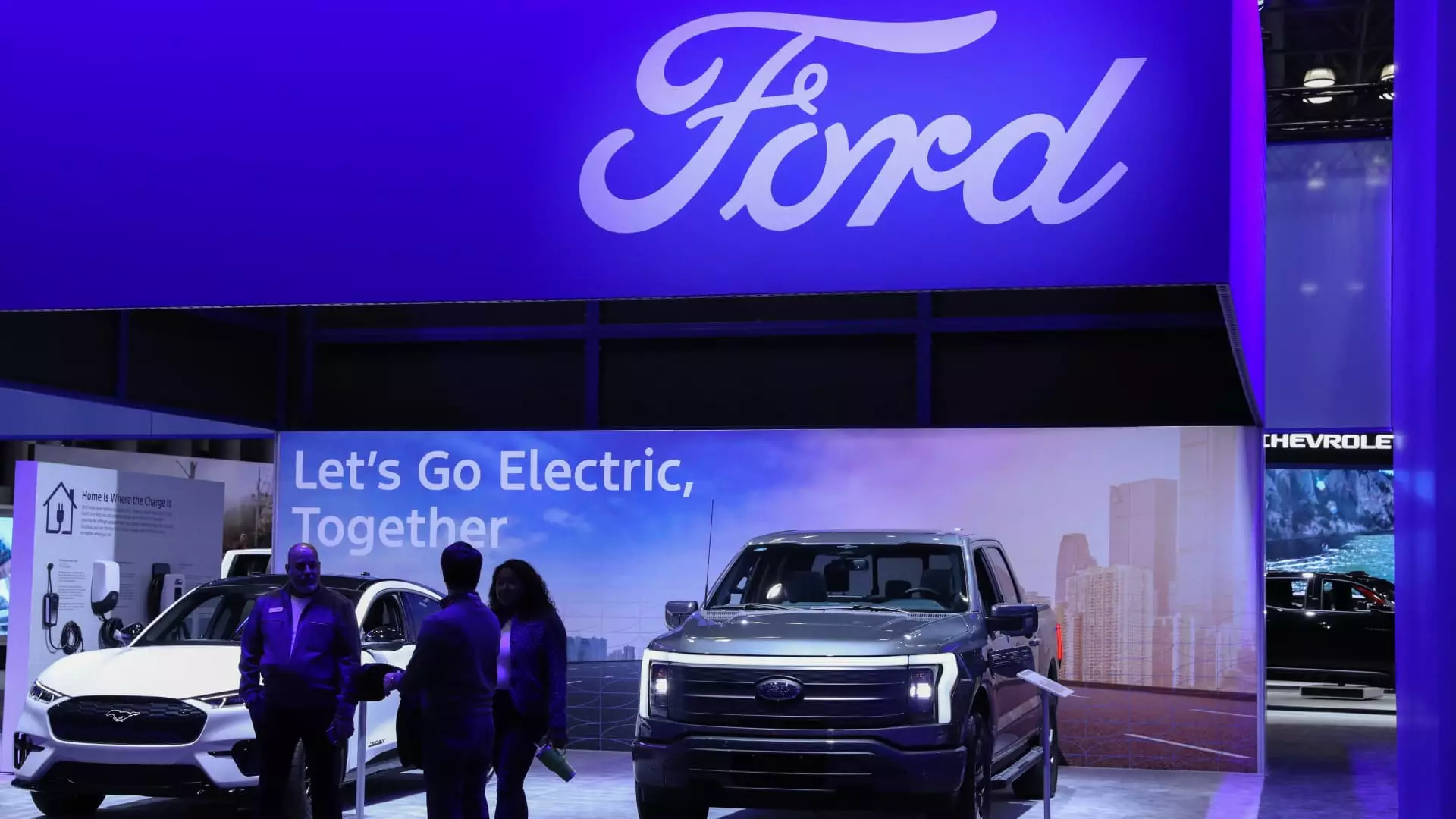Ford Motor Company recently announced a significant change in its production plans, delaying the launch of a next-generation all-electric pickup truck and canceling a three-row electric SUV. Instead, the company has decided to focus on the development of hybrid models and electric commercial vehicles. This strategic shift is aimed at capital efficiency and profitability in the electric vehicle business.
The decision to delay the production of electric vehicles will come at a cost for Ford. The company anticipates incurring a special noncash charge of around $400 million for the write-down of certain manufacturing assets related to the canceled SUV. Additionally, there may be additional expenses and cash expenditures of up to $1.5 billion. These financial impacts will be reflected in the company’s financial statements as a special item.
Ford’s CFO, John Lawler, highlighted that the company’s future capital expenditure plans will now prioritize spending on electric vehicles to a lesser extent. There will be a shift from allocating approximately 40% of the budget to all-electric vehicles to spending 30% on EVs. The decision reflects Ford’s strategy to focus on commercial trucks and SUVs, where the company has a competitive advantage.
The delayed production of the next-generation all-electric pickup truck was expected to take place at a new plant in Tennessee. Ford now plans to start production of a full-size electric truck at the Tennessee plant in 2027 and introduce a new midsize electric truck developed by a specialized team in California. The company still expects to commence battery cell production at the Tennessee site in 2025.
Ford’s shift in production plans follows a period of slower-than-expected adoption of electric vehicles in the market. The company aims to be more responsive to customer preferences and demands for electrification choices. This approach aligns with Ford’s commitment to profitable production and ensuring a clear path to profitability for new vehicle launches.
Despite the changes in its production schedule, Ford remains committed to its existing lineup of all-electric vehicles, including the Ford Mustang Mach-E crossover and F-150 Lightning pickup truck. The company plans to update its current EV offerings while also introducing new electric models in the coming years. Investors can expect more information on Ford’s electrification strategy and capital requirements in the first half of 2025.
Ford’s decision to delay production of electric vehicles reflects a strategic realignment to prioritize profitability and capital efficiency in its electric vehicle business. By focusing on commercial trucks and SUVs, where the company has a competitive advantage, Ford aims to better meet customer demands for electrification choices while maintaining financial sustainability.

Leave a Reply